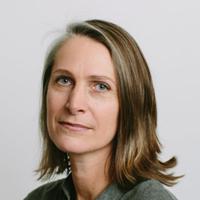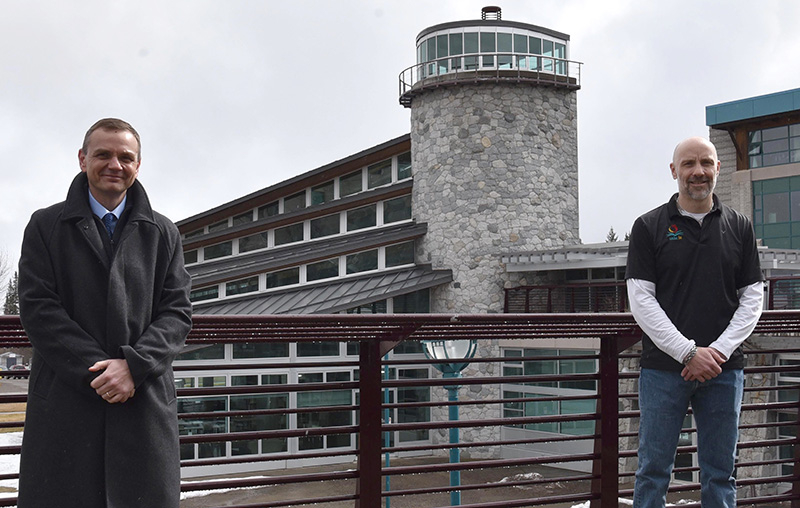When Geoffrey Payne stepped in as acting president at the University of Northern British Columbia more than a year ago, the first call he made was to the faculty association.
The northern university was coming off five years of upheaval, conflict and disruption.
A two-week strike in 2015 ended in forced arbitration. Then, in late 2019, faculty voted again to strike. This time, the action lasted three weeks, and instructors only returned to the classroom as the holidays loomed in an effort to save the students’ semester.
Instead of continuing the walkout, they took their grievance to the BC Labour Relations Board, accusing the university of bargaining in bad faith.
The university’s chief negotiator, Barb Daigle, arrived at UNBC two months after the 2015 strike. In mid-January 2020, amidst the labour conflict, she resigned as interim vice-president of finance, people, organizational design and risk.
Two weeks later, university president Daniel Weeks, who joined UNBC in July 2014, announced he would take an immediate and indefinite medical leave. His announcement came one week after faculty introduced a non-confidence motion against him.
The following month, Weeks officially resigned as president. Days later, UNBC faculty passed the non-confidence vote against its former president.
Payne, the university’s vice-president of research, was appointed interim president. Since then, he has met every other week with the faculty association’s president and vice-president, in addition to meeting regularly with campus unions.
He said he puts relationships at the top of the four pillars he sees as the university’s foundation, followed by vision, reputation and financial sustainability.
That makes this week’s announcement of a collective agreement, ratified over the weekend, incredibly exciting, Payne said.
But perhaps even more important, he added, is what the agreement means for relationship-building at the beleaguered university.
“I’ve been a part of the UNBC community for many years and I think this is an important moment and milestone for the community,” Payne said Wednesday.
“What’s even more important — and obviously the collective agreement is extremely important — is the fact that it shows that our relationship and open lines of communication are building.”
In the past, UNBC faculty have accused administration of offering salaries well below those at comparable universities. While wages were once competitive in an effort to attract instructors to the north, annual increases were less than half those at similar universities.
It became a point of conflict in past negotiations, faculty association president Paul Siakaluk said.
“We figure it’s been about nine-and-a-half years since we, as an association, started trying to persuade the employer that our salaries are out of whack with the industry standard,” he said. “I can’t even remember the last time we ratified a contract. It’s got to be a dozen years ago.”
Siakaluk said the turning point in negotiations came with a new salary structure that puts UNBC faculty “in the midst” of comparable universities for starting wages and yearly increases, with the issue of parity with other universities “largely corrected.”
The university said in a news release that the agreement includes general wage increases of two per cent each year, consistent with the province’s 2019 Sustainable Services Negotiating Mandate and more in line with other post-secondary institutions.
The agreement runs retroactively from July 2019 through June 2023. It covers nearly 500 faculty, including professors, instructors, lecturers, sessional lecturers, librarians and senior lab instructors, the university said.
“We’re somewhere in the middle of our competitor universities, whereas before we were right near the bottom,” said faculty association president Siakaluk. He suggested a shift in leadership had laid the groundwork for the successful bargaining, which resumed in January and took several weeks to resolve.
“He’s willing to listen,” he said about Payne. “We don’t always agree on everything, but our discussions are always civil, and we’ve made a lot of progress in issues even outside of our collective agreement. So, it’s very heartening to have a president like that.”
Payne directed credit back to the faculty association. “In the last while we’ve really started talking about trying to get a deal that we agreed on and that we both liked, and we did that,” he said.
The proposed agreement was supported unanimously by UNBC’s board of governors while faculty voted 98 per cent in favour.
Both Payne, a physiology professor, and Siakaluk, a psychology professor, started at UNBC in 2004, 10 years after the university opened. It’s the only university in northern B.C. and draws students from across the region.
Payne spoke to its importance for both the city of Prince George and the region.
“I’m very big on the UNBC community,” Payne said. “Because we are a collective community, and we all have a vested interest in UNBC success.”
Meanwhile, Weeks remains on payroll at the university more than a year after stepping down as president. His current position, which ends in August, includes both accrued research administrative leave and five months as special advisor to assist the presidency transition and provide “information regarding any number of topics,” according to an emailed statement from the university.
Payne’s contract as interim president wraps up in August 2022, by which time the university will need to find a replacement for Weeks.
When asked whether he’ll apply for the president job, Payne stumbled over his response.
“What’s the best way to put this?” he said. “I just roll up my sleeves and work with everybody. And you know, if that leads me to remaining in the seat, so be it. But I don’t think of it that way.
“My job is to work for UNBC and this community, and so as long as I sit in the seat, I will do my best to serve that role.” ![]()
Read more: Education, Labour + Industry
















Tyee Commenting Guidelines
Comments that violate guidelines risk being deleted, and violations may result in a temporary or permanent user ban. Maintain the spirit of good conversation to stay in the discussion.
*Please note The Tyee is not a forum for spreading misinformation about COVID-19, denying its existence or minimizing its risk to public health.
Do:
Do not: